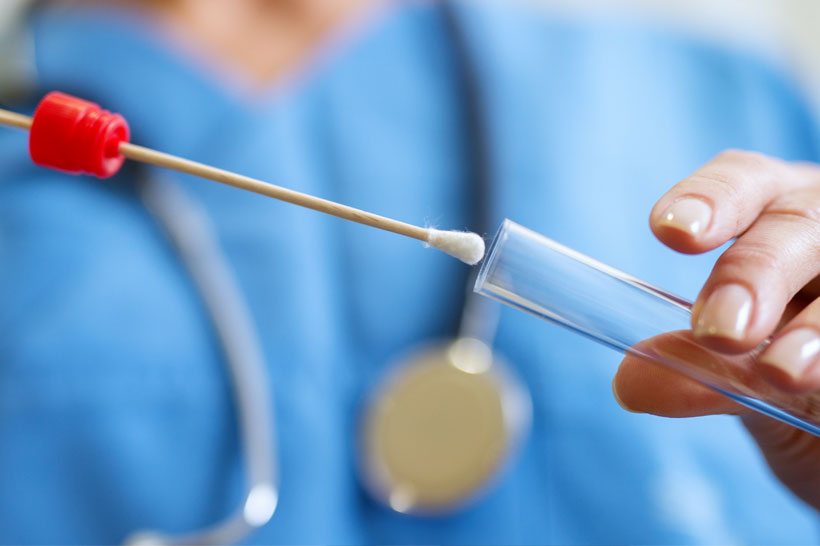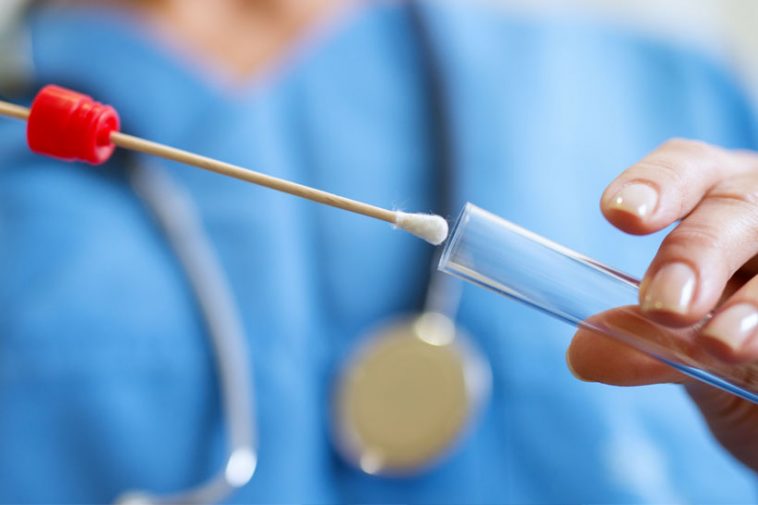- Like
- SHARE
- Digg
- Del
- Tumblr
- VKontakte
- Flattr
- Buffer
- Love This
- Save
- Odnoklassniki
- Meneame
- Blogger
- Amazon
- Yahoo Mail
- Gmail
- AOL
- Newsvine
- HackerNews
- Evernote
- MySpace
- Mail.ru
- Viadeo
- Line
- Comments
- Yummly
- SMS
- Viber
- Telegram
- JOIN
- Skype
- Facebook Messenger
- Kakao
- LiveJournal
- Yammer
- Edgar
- Fintel
- Mix
- Instapaper
- Copy Link
Introduction
 The number of people attempting to change their lifestyle to improve their health is growing substantially.
The number of people attempting to change their lifestyle to improve their health is growing substantially.
However, a rise in prominence of health-boosting products and solutions means more potentially dangerous side effects that consumers need to watch out for.
One such “solution” is the rising popularity of DNA home testing kits that supposedly provide you with advice on how to best change your diet and lifestyle.
DNA and microbiome at-home kits are the most popular of these solutions. However, the truth is, these tests are largely inaccurate and offer very little value. In fact, some experts are concerned that any changes made on such patch data might do more harm than good.
At the end of the day, though, DNA home testing kits are probably here to stay. Thankfully, there are some benefits to such solutions.
Let’s take a closer look…
Why Are People Going Crazy over DNA Home Test Kits?
DNA is a buzzword today, and microbiome is becoming one as well as the body of research that proves its importance for our health increases.
The result of it is that many people know these terms and some very generalized information about their meanings.
However, they have no idea of the real complexities of both DNA and microbiome research. This causes a lot of myths and businesses that sell such at-home testing kits benefit from them.
For example, everyone knows that your DNA is, basically, a code containing all important information about your body.
And it’s true that some types of DNA testing today are able to identify specific gene mutations. This information can alert researchers to the risk of some diseases, so preventative measures can be taken to improve the patient’s quality of life.
However, the much less-known fact is that this type of testing is extremely complex and it can only be carried out in highly specialized labs. The equipment used to make such analyses is enormously expensive and not available to the general public.
Moreover, even this sophisticated equipment isn’t 100% accurate. And also, the data regarding DNA studies is still too limited, so even identifying seemingly “compromised” genes does not guarantee that doctors would be able to improve the patient’s health in any significant way.
Companies that create and sell at-home DNA testing kits do not have access to such resources, so if you consider using these solutions, you need to start by asking how does it work? The answer is, above all, “not very accurately”.
What Home DNA Tests Can and Cannot Do
First of all, these tests are unable to diagnose or alert you about potential risks of any genetic diseases. You’ll learn it when you study product information about the kit.
These tests do not claim to have that kind of power. The most they could do is to identify some common markers that might indicate tendencies for specific mutations, but on a very limited scale.
Simply put, a top-quality test like this might be able to tell that you have a propensity for obesity, but it can’t be used as a diagnostic tool for any genetic pathology.
And speaking of obesity, you would be able to learn this without any tests by looking at family pictures for the last few generations.
What a test like this cannot do is to give you any health-based advice. And that’s something that the manufacturers of home DNA testing kits often do. Admittedly, that advice is usually generalized and follows the regular healthy lifestyle guidelines.
Therefore, following those tips should do any harm. However, this simply means that the test itself offers no value whatsoever. But it does expose you to many risks, including identity theft and possibility of mental health issues.
The good news is that the accuracy of these tests is increasing because it’s tied to the amount of data stored in the company’s databases.
As more people take the tests, more data becomes available, so comparisons that run through the database show more accurate matches. However, this adds little value to any purported health benefits of such tests.
The genealogy angle of home DNA testing, however, is improving greatly. So, if it doesn’t bother you that your DNA information would be publicly available (those databases can be hacked easily), you can take this test to indulge your passion for researching family trees.
However, if you want to use these tests as a way to get healthier, you shouldn’t get your hopes up.
Are Home DNA Testing Kits Dangerous?
Home DNA testing isn’t actively dangerous. It’s true that someone might hack the database of the testing company and use your information for nefarious purposes. However, someone might do the same to your online banking app or Facebook account. Arguably, the impact of that hack would be much worse.
Conclusion
DNA kits might not be very accurate, but they usually aren’t a total miss either. This means that you might be able to learn something useful from them.
As long as you take any results with a large pinch of salt and talk to a doctor, nutritionist, or a personal trainer before making any major diet and lifestyle changes, those tests will be safe and fun to use.
About Shannon Clark
Shannon holds a degree in Exercise Science and is a certified personal trainer and fitness writer with over 10 years of industry experience.

